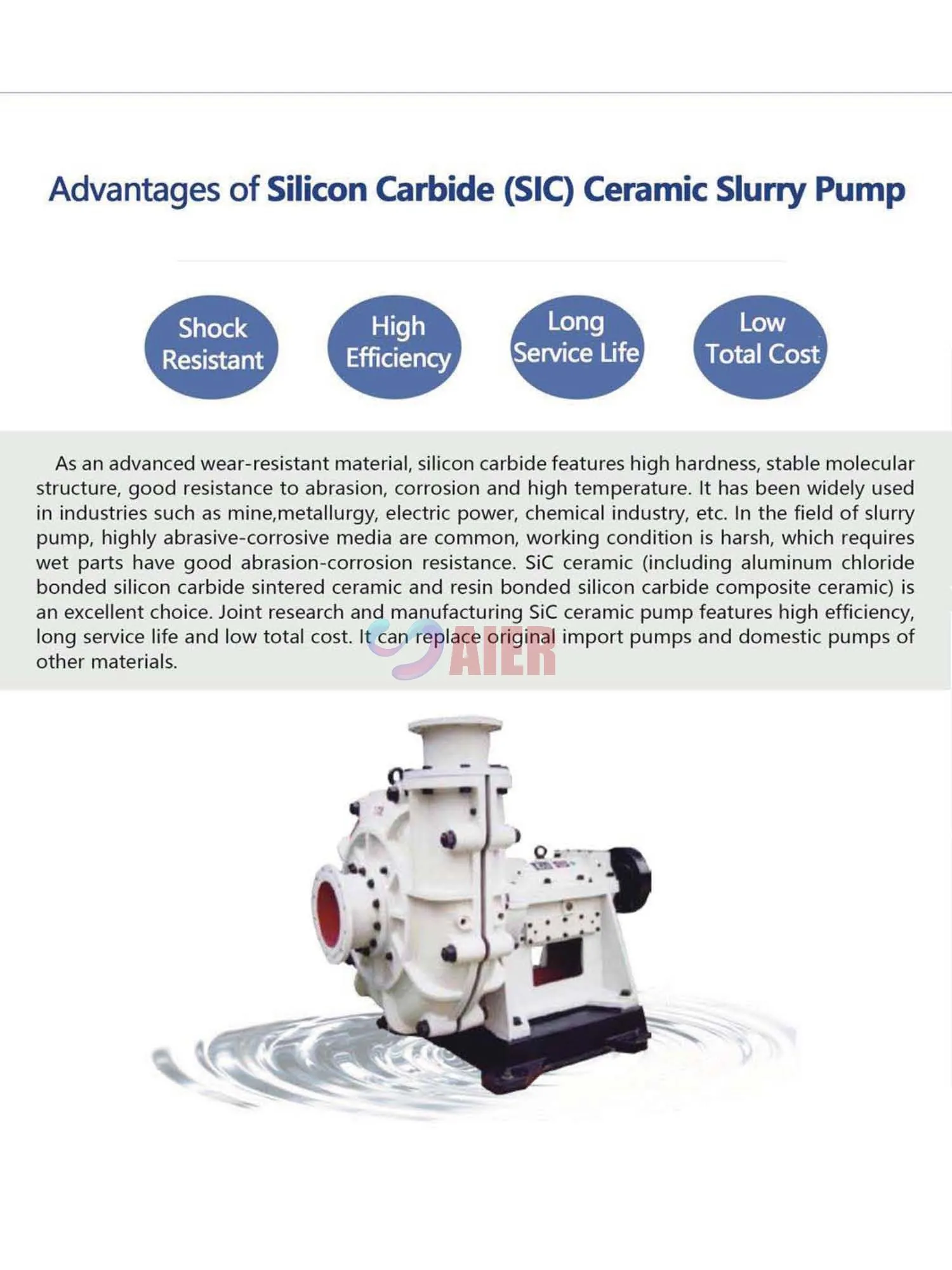Aug . 10, 2024 18:25 Back to list
Effective Pump Solutions for Lithium Slurry Processing in Manufacturing Facilities and Industries
The Importance of Pumps in Lithium Slurry Production A Comprehensive Overview
In the pursuit of sustainable energy solutions and technological advancements, lithium has emerged as a critical component in the production of batteries, especially for electric vehicles (EVs) and renewable energy storage systems. The process of extracting and processing lithium often involves the handling of lithium slurry, a mixture containing lithium minerals and water that requires efficient and reliable pumping systems. This article explores the significance of pumps in lithium slurry factories, highlighting their roles, types, and the latest innovations driving their efficiency.
Lithium slurry typically consists of fine particles suspended in a liquid medium, which can present challenges in terms of transport and processing. Effective handling of this slurry is crucial for maintaining production efficiency and ensuring product quality. Pumps are integral to this process, as they facilitate the movement of slurry from one stage of production to another, ensuring a continuous flow that is vital for large-scale operations.
The Importance of Pumps in Lithium Slurry Production A Comprehensive Overview
Moreover, submersible pumps are increasingly being employed in lithium mining operations where slurry needs to be pumped from deep within the earth. These pumps are designed to operate while submerged in fluid, allowing for efficient extraction without the need for extensive surface infrastructure. The choice of pump not only affects the efficiency of the process but also has implications for maintenance costs, energy consumption, and overall environmental impact.
pump for lithium slurry factory

Innovation plays a pivotal role in the evolution of pump technology for lithium slurry applications. Recently, advancements have focused on materials that enhance durability and resistance to abrasion, a significant concern given the harsh properties of lithium slurry. Using hard alloys and specialized coatings can prolong the life of pumps, reducing downtime and maintenance costs.
Furthermore, the integration of smart technology into pump systems allows for real-time monitoring of performance metrics. This capability enables operators to optimize pump operation, ensuring that conditions are optimal for slurry transport. Predictive maintenance powered by IoT (Internet of Things) technologies can also identify potential failures before they occur, significantly enhancing operational efficiency.
The environmental implications of lithium extraction are increasingly coming under scrutiny, and efficient pump technology can contribute to more sustainable practices. By reducing energy consumption and improving the overall efficiency of the slurry transport process, manufacturers can lower their carbon footprint and lessen the environmental impact of lithium extraction.
In conclusion, pumps are vital components in the production of lithium slurry, enabling the efficient transport and processing necessary for high-quality lithium extraction. With advancements in pump technology, including new materials, smart monitoring systems, and a focus on sustainability, the future of lithium slurry factories looks promising. As demand for lithium continues to rise in line with the global push for renewable energy solutions, the role of efficient pumping systems will only become more critical in meeting production needs while adhering to environmental standards. The ongoing innovation in this field not only enhances productivity but also contributes significantly to a more sustainable future.
-
Wholesale Casting Dredge Pump Part - High Quality China Manufacturers & Suppliers
NewsJul.04,2025
-
High Quality Slurry Pump Seals Reliable China Suppliers & Manufacturers
NewsJun.24,2025
-
High Quality Portable Submersible Slurry Pump Supplier & Manufacturer from China
NewsJun.10,2025
-
Slurry Pump Parts Manufacturer – High Quality Rubber Spare Parts from China
NewsJun.10,2025
-
High Quality 1/3 HP Submersible Sump Pump with Vertical - Reliable Supplier & Factory Price
NewsJun.10,2025
-
High-Efficiency Centrifugal Slurry Pumps India
NewsJun.10,2025
